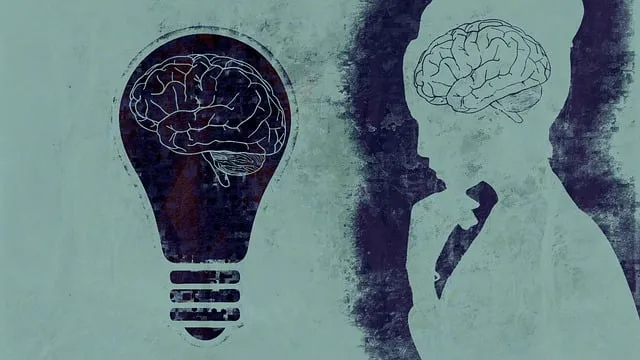Greenwood Village Kaiser Permanente (GVKP) is leading the way in innovative mental health care with specialized Crisis Intervention Teams (CITs). These teams, consisting of trained professionals, provide immediate support during crises and help individuals access long-term care. Through comprehensive training programs focusing on de-escalation, mood management, self-care, and stigma reduction, GVKP empowers staff to navigate high-stress scenarios effectively. Their interactive role-playing exercises and simulations prepare teams for real-world crises, improving communication and decision-making skills. This proactive approach not only enhances patient outcomes but also fosters a healthier work environment, making GVKP a recognized leader in mental health care.
“Crisis intervention teams (CITs) play a pivotal role in healthcare settings, particularly in addressing mental health crises. This article explores the significance of these specialized teams, using Greenwood Village Kaiser Permanente as a case study, where their innovative approach to mental health support has made a profound impact.
We’ll delve into the essential components of crisis intervention training programs and emphasize the value of hands-on practice and simulation in preparing teams for real-world scenarios, highlighting best practices from Greenwood Village Kaiser Permanente’s successful program.”
- Understanding Crisis Intervention Teams: Their Role and Impact
- Greenwood Village Kaiser Permanente's Approach to Mental Health Support
- Essential Components of Effective Crisis Intervention Training Programs
- Preparing for Real-World Scenarios: Practice and Simulation in Team Training
Understanding Crisis Intervention Teams: Their Role and Impact

Crisis Intervention Teams (CITs) are specialized groups designed to provide immediate support during mental health crises. These teams typically consist of trained professionals from various disciplines, including psychologists, social workers, and peer support specialists. The primary role of CITs is to de-escalate high-risk situations, offer crisis counseling, and connect individuals in need with appropriate long-term care options, such as those offered by Greenwood Village Kaiser Permanente’s mental health services.
By implementing CIT training programs, organizations like Kaiser Permanente prioritize risk management planning for mental health professionals. This proactive approach equips team members with the skills to recognize warning signs, manage high-stress scenarios effectively, and promote self-care practices, including mindfulness meditation. Such initiatives not only enhance patient outcomes but also contribute to a healthier work environment where professionals can provide consistent, compassionate care.
Greenwood Village Kaiser Permanente's Approach to Mental Health Support

Greenwood Village Kaiser Permanente has taken a proactive step in addressing mental health concerns by implementing specialized crisis intervention team training programs. Their approach focuses on empowering employees and fostering a supportive environment, recognizing that early intervention is key to managing mental health crises effectively. The organization prioritizes Inner Strength Development, equipping individuals with the tools to navigate stress and build resilience.
Through these training initiatives, Kaiser Permanente aims to reduce stigma and increase accessibility to mental health support. By educating staff on Stress Management techniques and fostering a culture of empathy, they ensure that patients receive holistic care. This comprehensive strategy not only benefits the workforce but also enhances the overall quality of patient experiences, making Greenwood Village Kaiser Permanente a leader in innovative mental health care.
Essential Components of Effective Crisis Intervention Training Programs

Effective crisis intervention training programs are multifaceted, aiming to equip individuals with the skills needed to navigate and de-escalate intense situations. A comprehensive curriculum should include interactive components such as role-playing scenarios, where trainees can practice their response strategies in a safe environment. This allows them to develop emotional resilience and enhance their ability to connect with individuals in crisis.
Additionally, integrating evidence-based techniques for mood management and self-care practices is vital. Training programs should address the importance of these tools in maintaining emotional balance and preventing burnout. By incorporating modules on mental illness stigma reduction efforts, participants can gain a deeper understanding of the impact their words and actions can have on those facing mental health challenges. Programs that offer a balanced blend of theoretical knowledge, practical skills, and self-care awareness are best equipped to prepare crisis intervention teams in Greenwood Village, like Kaiser Permanente’s mental health number, to make a positive difference.
Preparing for Real-World Scenarios: Practice and Simulation in Team Training

Preparing for real-world scenarios is a cornerstone of effective crisis intervention team training. Practice and simulation exercises play a pivotal role in equipping teams to handle diverse and complex situations. These sessions allow participants to experience firsthand the challenges and demands of crisis interventions, fostering an environment where learning is not just theoretical but practical. By replicating stressful conditions, trainees can refine their communication skills, improve decision-making under pressure, and develop strategies for de-escalation—all essential elements for effective crisis management.
Greenwood Village Kaiser Permanente’s mental health number highlights the importance of such training in community settings. Simulations often incorporate scenarios depicting various mental illnesses, substance abuse crises, or even suicide attempts. Through these exercises, teams learn to navigate delicate situations with empathy and professionalism, reducing the risk of escalating issues. Moreover, engaging in realistic simulations helps break down barriers associated with mental illness stigma reduction efforts and promotes emotional well-being promotion techniques by encouraging open dialogue and understanding among team members.
Crisis intervention team (CIT) training programs play a vital role in equipping healthcare professionals with the skills needed to support individuals in mental health crises. As demonstrated by Greenwood Village Kaiser Permanente’s innovative approach, integrating mental health support into primary care settings can significantly enhance access and quality of care. Effective CIT training should incorporate practical exercises and simulations to prepare teams for real-world scenarios, ensuring they can provide compassionate and competent assistance. By investing in comprehensive training, organizations like Greenwood Village Kaiser Permanente can improve patient outcomes and create a more resilient community response to mental health emergencies.


